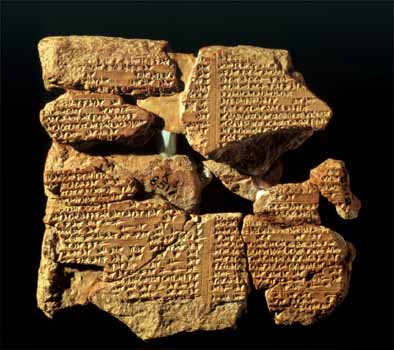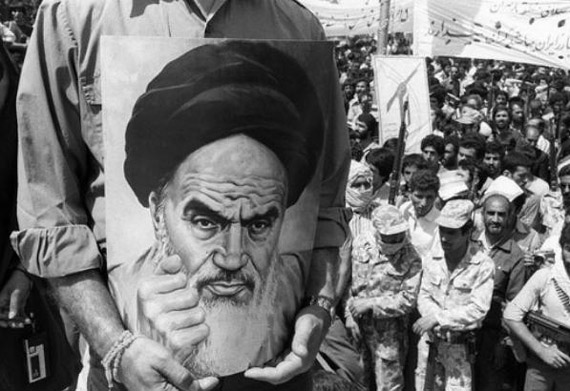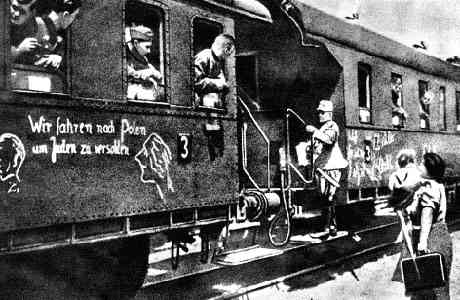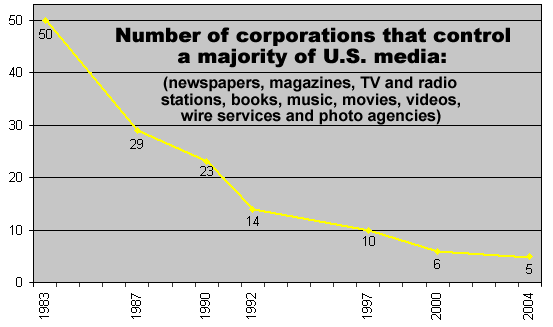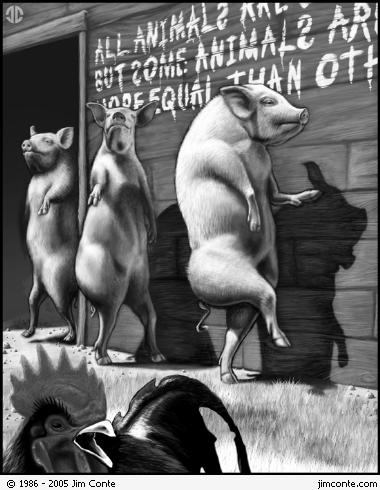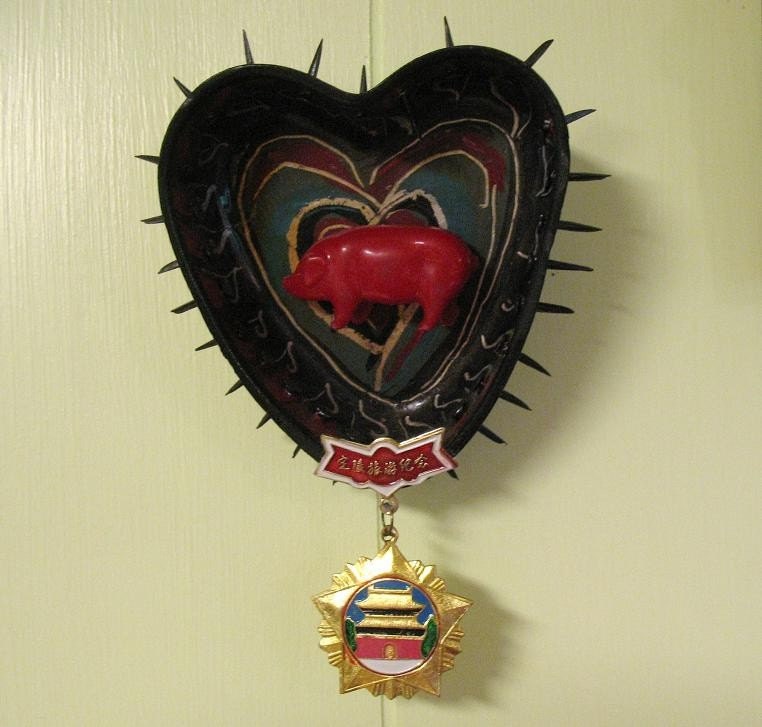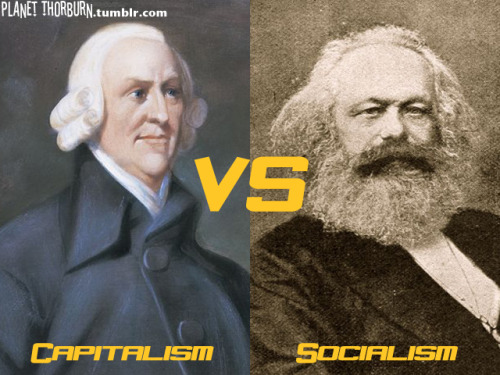Welcome! This blog is for the purpose of supporting students in the Fortuna High School Global Studies program. If you have any questions, please contact Tara Nuth Kajtaniak at tkajtaniak@fuhsdistrict.org.
Thursday, December 15, 2011
Assignment for 12/15/11
Please read through Chapter 14 in Things Fall Apart and complete Ch. 14 Study Guide Questions.
Wednesday, December 7, 2011
Friday, December 2, 2011
Continuing Assignment Through December: Gulen Essay
Students will be working on their Gulen Essay Competitions essays throughout the month of December. Rough Drafts are due by 5 PM on December 16. This essay is the only homework given during this month, and they essay information can be accessed by clicking on "Gulen Essay" on the links on the right of this page.
Monday, November 28, 2011
Assignment for 11/28
Please read through Chapter 7 in Things Fall Apart. Questions for Chapters 4-7 will be collected Tuesday. For Chapters 5 and 6, please summarize the New Yam Festival (in 5 sentences) and the wrestling match (in 5 sentences). When you get to Study Guide Questions for Chapter 7, skip #3 ("Essay").
Tuesday, November 15, 2011
Assignment for 11/15/11
Read Things Fall Apart through Chapter 3. Complete Study Guide Questions as well as Vocabulary Cycle One questions from Study Guide for tomorrow.
Monday, November 14, 2011
Assignment for 11/14/11
Please read through Chapter 2 of Things Fall Apart and complete the Study Guide Questions for Chapters 1 and 2 on binder paper.
Gulen Essay Part 2 (Paragraph with MLA citations) due Tuesday.
Please complete "Vocabulary: Cycle One" in Things Fall Apart Study Guide for Wednesday.
Gulen Essay Part 2 (Paragraph with MLA citations) due Tuesday.
Please complete "Vocabulary: Cycle One" in Things Fall Apart Study Guide for Wednesday.
Sunday, November 13, 2011
Chinua Achebe's Things Fall Apart Materials
Link to Things Fall Apart Materials
The link above includes Study Guide, Ibo Traditions Chart, and Introductory PowerPoint Lecture.
The link above includes Study Guide, Ibo Traditions Chart, and Introductory PowerPoint Lecture.
Sunday, November 6, 2011
Journals #10: Linguistic Map of Africa
Part One: Study the linguistic map of Africa below. What do you notice about both the language groups as well as the political borders on that map? In one paragraph, what conclusions can you draw about what that means for the people, societies, and/or cultures of Africa?
Part Two: Study the cartoon below and respond to the following two questions in one paragraph.
1. Explain the cartoon that follows. What is happening in the cartoon?
Total for this Journal Entry: 1 paragraph = 5 points each
Part Two: Study the cartoon below and respond to the following two questions in one paragraph.
1. Explain the cartoon that follows. What is happening in the cartoon?
Total for this Journal Entry: 1 paragraph = 5 points each
Tuesday, November 1, 2011
Aristide Article: "Globalization: A View From Below"
Link to Aristide article.
Response Questions
for “Globalization: A View from Below” by Jean-Bertrand Aristide
1. What do you think is the problem with profit being the only measure of human progress?
2. Aristide argues that the poorest people of the world are only being used for ________?
3. Describe the marketplace of Aristide’s childhood in comparison to what he calls the “faceless” global marketplace?
4. What is Aristide’s fear regarding the increase of global trade?
5. Explain what happened to Haiti’s rice production as a result of the flood of rice from the US? How did it affect everyday people in Haiti?
6. Explain in detail what happened to the Haitian Creole pig.
7. How do you think the situation with the Haitian Creole pig affected the people of Haiti’s view of globalization?
8. What are the two options for the people of Haiti? Why do you think so many Haitians have immigrated to the United States (with their largest concentrations in Miami and New York City)?
9. What is Aristide’s thesis in this article? (What is the main point he is trying to prove to his audience?)
Friday, October 28, 2011
Part One: Gulen Essay
One paragraph about ONE of the issues. Why is this one of the most serious issues facing children? (Why are you choosing this topic?) USE LOTS AND LOTS OF LOGOS (statistics, facts, examples) with parenthetical references/in-text citations.
Bottom of your page: Sources in MLA format (use easybib.com).
Bottom of your page: Sources in MLA format (use easybib.com).
Monday, October 24, 2011
Links to Articles Relevant to Gulen Essay Competition and Expository Essay
Violence:
Impact of Violent Conflict on Child Health
http://www.microconflict.eu/publications/PB6_PV_TB_RA.pdf
UN Rights of the Child:
http://www.unicef.org/rightsite/files/uncrcchilldfriendlylanguage.pdf
Preventing Violent Conflict:
http://reliefweb.int/sites/reliefweb.int/files/resources/94F326327650B3D3C12572DD004BD0CF-dfid-conflictprevention-may07.pdf
Peace Education in Afghanistan:
http://www.helptheafghanchildren.org/pages.aspx?content=28
On the Brink:
http://www.humiliationstudies.org/documents/ScheperPrevention.pdfPoverty:
NPR story on Obama sending Troops to Fight LRA in Central Africa: http://www.npr.org/2011/10/25/141667263/activists-support-u-s-move-against-uganda-rebels
Link to Invisible Children (Organization): http://invisiblechildren.com/homepage
Poverty
Poverty Statistics: http://www.globalissues.org/article/26/poverty-facts-and-stats
Good Overview on Wikipedia, but DO NOT CITE WIKIPEDIA: See sources. http://en.wikipedia.org/wiki/Child_poverty
State of the World's Children (UNICEF): http://
www.unicef.org/sowc/
Poverty in America: Faces Behind the Figures (CBS): http://www.cbsnews.com/stories/2011/09/19/national/main20108085.shtml?tag=re1.channel
NYT Article About Poverty Spikes in American: http://www.nytimes.com/2011/11/04/us/extreme-poverty-is-up-brookings-report-finds.html?_r=1&hp
Kiva (Micro-Lending Organization): www.kiva.org
Grameen Bank (Bank for the Poor, Micro-lending): http://www.grameen-info.org/
Oxfam International: http://www.oxfam.org/
Who Rules the Global Economy? (NYT): http://economix.blogs.nytimes.com/2011/11/07/who-rules-the-global-economy/?pagemode=print
Child Labor:
New York Times Times Topics: Child Labor: http://topics.nytimes.com/topics/reference/timestopics/subjects/c/child_labor/index.html
Child Slavery:
Chocolate and Child Slavery (American University): http://www1.american.edu/ted/chocolate-slave.htm
LA Times Article: http://articles.latimes.com/2009/jul/12/world/fg-ghana-slavery12
A Case for Global Women's Rights ("Strong Women Build Strong Economies" from CNN): http://finance.fortune.cnn.com/2011/11/28/womens-rights-strong-economy/
National Geographic Article on Child Brides: http://ngm.nationalgeographic.com/2011/06/child-brides/gorney-text
Health Issues/AIDS:
UNICEF: Children and HIV and AIDS: http://www.unicef.org/aids/index_introduction.php
"Selling Water, Health Care in the Developing World" (NPR): http://www.npr.org/2011/11/22/142184691/selling-water-health-care-in-the-developing-world
Education:
"Students Briefly Occupy Chile's Senate" (from New York Times): http://www.nytimes.com/aponline/2011/10/20/world/americas/AP-LT-Chile-Congress-Protesters.html?src=un&feedurl=http%3A%2F%2Fjson8.nytimes.com%2Fpages%2Feducation%2Findex.jsonp
Impact of Violent Conflict on Child Health
http://www.microconflict.eu/publications/PB6_PV_TB_RA.pdf
UN Rights of the Child:
http://www.unicef.org/rightsite/files/uncrcchilldfriendlylanguage.pdf
Preventing Violent Conflict:
http://reliefweb.int/sites/reliefweb.int/files/resources/94F326327650B3D3C12572DD004BD0CF-dfid-conflictprevention-may07.pdf
Peace Education in Afghanistan:
http://www.helptheafghanchildren.org/pages.aspx?content=28
On the Brink:
http://www.humiliationstudies.org/documents/ScheperPrevention.pdfPoverty:
NPR story on Obama sending Troops to Fight LRA in Central Africa: http://www.npr.org/2011/10/25/141667263/activists-support-u-s-move-against-uganda-rebels
Link to Invisible Children (Organization): http://invisiblechildren.com/homepage
Poverty
Poverty Statistics: http://www.globalissues.org/article/26/poverty-facts-and-stats
Good Overview on Wikipedia, but DO NOT CITE WIKIPEDIA: See sources. http://en.wikipedia.org/wiki/Child_poverty
State of the World's Children (UNICEF): http://
www.unicef.org/sowc/
Poverty in America: Faces Behind the Figures (CBS): http://www.cbsnews.com/stories/2011/09/19/national/main20108085.shtml?tag=re1.channel
NYT Article About Poverty Spikes in American: http://www.nytimes.com/2011/11/04/us/extreme-poverty-is-up-brookings-report-finds.html?_r=1&hp
Kiva (Micro-Lending Organization): www.kiva.org
Grameen Bank (Bank for the Poor, Micro-lending): http://www.grameen-info.org/
Oxfam International: http://www.oxfam.org/
Who Rules the Global Economy? (NYT): http://economix.blogs.nytimes.com/2011/11/07/who-rules-the-global-economy/?pagemode=print
Child Labor:
New York Times Times Topics: Child Labor: http://topics.nytimes.com/topics/reference/timestopics/subjects/c/child_labor/index.html
Child Slavery:
Chocolate and Child Slavery (American University): http://www1.american.edu/ted/chocolate-slave.htm
LA Times Article: http://articles.latimes.com/2009/jul/12/world/fg-ghana-slavery12
UN fears rising child sex trade: http://www.guardian.co.uk/world/2004/nov/09/johnaglionby/print
Gender Inequality:A Case for Global Women's Rights ("Strong Women Build Strong Economies" from CNN): http://finance.fortune.cnn.com/2011/11/28/womens-rights-strong-economy/
National Geographic Article on Child Brides: http://ngm.nationalgeographic.com/2011/06/child-brides/gorney-text
Health Issues/AIDS:
UNICEF: Children and HIV and AIDS: http://www.unicef.org/aids/index_introduction.php
"Selling Water, Health Care in the Developing World" (NPR): http://www.npr.org/2011/11/22/142184691/selling-water-health-care-in-the-developing-world
Education:
"Students Briefly Occupy Chile's Senate" (from New York Times): http://www.nytimes.com/aponline/2011/10/20/world/americas/AP-LT-Chile-Congress-Protesters.html?src=un&feedurl=http%3A%2F%2Fjson8.nytimes.com%2Fpages%2Feducation%2Findex.jsonp
Tuesday, October 18, 2011
"The Allegory of the Cave" and the film, Chocolat
As you view the film Chocolat, take notes on similarities between the concepts in Plato's "Allegory of the Cave" and the plot and characters of Chocolat.
Following the viewing of the film, you will write a short essay (3-4 paragraphs) comparing Plato's work to the film. In what ways is the film an example of Plato's allegory?
Following the viewing of the film, you will write a short essay (3-4 paragraphs) comparing Plato's work to the film. In what ways is the film an example of Plato's allegory?
Thursday, October 13, 2011
Wednesday, October 12, 2011
Plato's "Allegory of the Cave"
Please read Plato's "Allegory of the Cave" and respond to the following five questions on binder paper.
Link to the text of "Allegory of the Cave" by Plato
Questions for response:
1. An allegory, or parable, is a concrete story on one level and an explanation of an abstract idea on another. Each part of the story symbolizes something. Explain what each part of the story symbolizes.
2. Although Plato does not say who placed people in chains, who seems to be the jailer when the freed prisoner returns to free the others?
3. Plato equates the journey out of the cave with gaining knowledge. Why would people prefer to remain in the cave with illusions of what is real?
4. Why do you think Plato presents this as a dialogue?
5. In the final paragraph, Plato summarizes the meaning of his allegory. Do you think it is necessary, or would you have been able to put together the metaphor on your own?
Link to the text of "Allegory of the Cave" by Plato
Questions for response:
1. An allegory, or parable, is a concrete story on one level and an explanation of an abstract idea on another. Each part of the story symbolizes something. Explain what each part of the story symbolizes.
2. Although Plato does not say who placed people in chains, who seems to be the jailer when the freed prisoner returns to free the others?
3. Plato equates the journey out of the cave with gaining knowledge. Why would people prefer to remain in the cave with illusions of what is real?
4. Why do you think Plato presents this as a dialogue?
5. In the final paragraph, Plato summarizes the meaning of his allegory. Do you think it is necessary, or would you have been able to put together the metaphor on your own?
The Danger of New Ideas
What are some ideas that our society has feared throughout history? On notebook paper, please write one paragraph explaining why you think that society often fears new ideas.
Sunday, October 9, 2011
Democracy is__________.
Please complete on notebook paper.
1. Fill in the blank: Democracy is __________________________.
(Please don't just use the formal definition. See how creative and poetic you can be!)
2. After you view the award-winning amateur video (from the Democracy Video Challenge) by Joel Marsden of Spain, respond to the following questions in one paragraph: http://www.videochallenge.america.gov/video.html
What would a united, global democracy, with each person having one vote, look like? How would the world change? What are some positive and negative results of a world-wide democracy?
1. Fill in the blank: Democracy is __________________________.
(Please don't just use the formal definition. See how creative and poetic you can be!)
2. After you view the award-winning amateur video (from the Democracy Video Challenge) by Joel Marsden of Spain, respond to the following questions in one paragraph: http://www.videochallenge.america.gov/video.html
What would a united, global democracy, with each person having one vote, look like? How would the world change? What are some positive and negative results of a world-wide democracy?
Sunday, October 2, 2011
Peace Organizations Project
Researching Israel-Palestine Peace Organizations
For this project, you will independently, and as a group, research your assigned organization that is working for peace in Israel-Palestine. Then, you will work as a team to create a PowerPoint presentation on your assigned organization.
Organizations:
Group 1: B'Tselem - The Israeli Information Center for Human Rights in the Occupied Territories: http://www.btselem.org
Group 2: Seeds of Peace: http://www.seedsofpeace.org
Group 3: Hand-in-Hand –Center for Jewish-Arab Education: http://www.handinhandk12.org/
Group 4: The Abraham Fund – Advancing Coexistence and Equality Among Jews and Arabs in Israel: http://www.abrahamfund.org
Group 5: Friends of the Earth Middle East: http://www.foeme.org
Group 6: Ta’ayush Arab Jewish Partnership: http://www.taayush.org
Group 7: Parents Circle-Families Forum – Bereaved Families Supporting Peace, Reconciliation, and Tolerance: http://www.theparentscircle.com/
Presentation Criteria:
Please respond to the following questions in your presentation:
1. Give your audience a brief overview of the organization.
2. History of the Organization: How did the organization begin, by whom, and why? Give your audience an overview of the history of the organization.
3. Purpose of the Organization: What is the group trying to achieve? In other words, what is their purpose?
4. Programs/Projects: Discuss at least two of the specific programs or projects that the group is currently working on.
5. Your Organization in the News: Find and summarize one news article in which your organization is featured. One way to find a news article about your group is to do a “Google News” search.
6. How We Can Help: Discuss one or two ways to support the organization. Also, if there are internships and job opportunities, please mention them.
7. Social Media: Does the organization have a Facebook and/or Twitter Account?
8. Works Cited: Include a Works Cited Page at the end of your presentation in MLA format that shows us where you got your information. You do not have to cite your images for this particular project.
Criteria for Grading:
1. Information is complete, accurate, and as up-to-date as possible.
2. You have addressed all of the above questions and are clearly knowledgeable about your assigned organization.
3. You have completed and handed in a “Group Contributions” sheet.
4. Your PowerPoint is complete, aesthetically pleasing, informative, with images and a completed Works Cited page and Title Slide.
5. Each group member must contribute to the “Speaking” portion of the presentation.
Tuesday, September 27, 2011
Arab-American Handbook
If you are absent 9/27 and 9/28, we are working on reading The Arab-American Handbook by Nawar Shora. The excerpt we are reading was handed out last week and starts with a "quiz" that we took in class. Please read the entire packet while taking notes. There will be a quiz on this reading on Friday.
Sunday, September 11, 2011
Thursday, September 8, 2011
Journal #4: A Map Study
Study the following map.
1. What is happening one that map? Be as detailed as possible.
2. Why do you think it is happening?
3. What kinds of issues do you think each of these groups, the Israelis and the Palestinians, are having as a result of what you see on this map. (Click on the map to enlarge.)
1. What is happening one that map? Be as detailed as possible.
2. Why do you think it is happening?
3. What kinds of issues do you think each of these groups, the Israelis and the Palestinians, are having as a result of what you see on this map. (Click on the map to enlarge.)
Tuesday, September 6, 2011
Journal #3: Defining Religion
Because we are about to begin our studies of the Modern Middle East, the birthplace of Judaism, Christianity, and Islam, we are going to take some time to reflect on religion. Answer the following questions in your journal in complete sentences.
1. In one sentence, define religion.
2. Why are there religions? (5 sentences or more)
(10 points total)
1. In one sentence, define religion.
2. Why are there religions? (5 sentences or more)
(10 points total)
Wednesday, August 31, 2011
Introduction to the Epic of Gilgamesh
If you were absent, the following PowerPoint contains the introduction and assignment associated with our reading of Tablet IX of the Epic of Gilgamesh: The Flood Story
Link to Epic of Gilgamesh Intro PowerPoint
Link to Epic of Gilgamesh Intro PowerPoint
Monday, August 29, 2011
Wednesday, August 24, 2011
Journal #2: Reflection on "Building Miniature Houses"
In one paragraph (8 sentences or more), please respond to the following questions:
1. Given what you experienced in the activity, what do you think about the argument that there should be a fairer distribution of wealth and resources in our community and our world?
2. Why do you think there is such inequality in wealth and resources in the world?
1. Given what you experienced in the activity, what do you think about the argument that there should be a fairer distribution of wealth and resources in our community and our world?
2. Why do you think there is such inequality in wealth and resources in the world?
Thursday, May 19, 2011
Journal #29: Strengths and Limitations of Cartoon in Storytelling
What are the strengths and limitations of using the graphic cartoon to tell a story? Explain in one paragraph using details/examples.
Wednesday, May 18, 2011
Wednesday, May 11, 2011
Introduction to Iranian Revolution
Here is the link to the PowerPoint Lecture slides on the 1953 CIA coup, the days of the Shah, and the subsequent Iranian Revolution: Link to Iran
Sunday, May 8, 2011
Tuesday, May 3, 2011
Journal #28: Okay to kill bin Laden?
Do you believe that it was a good idea to kill Osama bin Laden? Explain your specific reasons why or why not.
(1 paragraph)
(1 paragraph)
Monday, May 2, 2011
Night Reading Assignment for 5/2/11
Please read to page 91. Reading Assignment 4 Questions due on Wednesday.
Thursday, April 14, 2011
Night Assignment for Thursday/Friday 4/14-15
Please read through page 38 (Section 2), and complete "Reading Assignment 1" Response Questions in your Study Guide. 1 paragraph response per question on binder paper. No late work accepted.
Tuesday, April 12, 2011
Night Reading Assignment for 4/12
Please read pages 13-18 today.
Thursday, April 7, 2011
Journal #27: Defining the word "Identity"
In the first part of the memoir Night, Elie defines for the reader his identity as a young man.
In one paragraph, what does identity mean to you?
In one paragraph, what does identity mean to you?
Wednesday, March 30, 2011
Introduction to Elie Wiesel: Holocaust Survivor, Author, Nobel Laureate
1. Please read "Holocaust Survivors' Storyteller" published by the Academy of Achievement. While you read, take detailed notes on binder paper. You will have an open-notes quiz on Tuesday on this reading. The reading can be found at this link: Holocaust Survivors' Storyteller
2. Following the reading, please view the Elie Wiesel Interview at the following link, and while you view the interview clips, note one insight about Elie Wiesel per clip. You may either read the interview, or listen and read along. Elie Wiesel Interview
2. Following the reading, please view the Elie Wiesel Interview at the following link, and while you view the interview clips, note one insight about Elie Wiesel per clip. You may either read the interview, or listen and read along. Elie Wiesel Interview
Thursday, March 10, 2011
Journal #26: Introduction to Media Literacy Continued
Analyze the charts below. For each chart, describe what the chart is showing. Then, after that, discuss what you think about what these charts are implying. (What does this mean for real people and for democracy in general? What problems do these charts imply?) 1 paragraph for EACH chart, for a total of two paragraphs (10 points)
Wednesday, March 9, 2011
Journal #25: Alphabet Logo Activity
After viewing and taking the Plant Identification Quiz and the Brand Name Quiz, analyze the results in your journal. Which one did you score higher on? (If you were absent from class during the activity, click on the link below and follow instructions.)
Discussion Questions:
What do the results of this exercise tell us about what influences our knowledge about the world around us? What does is say about what shapes our knowledge? What do the results imply about what we know and where we get our information from?
Link to Alphabet Logo PowerPoint
(1 paragraph)
Discussion Questions:
What do the results of this exercise tell us about what influences our knowledge about the world around us? What does is say about what shapes our knowledge? What do the results imply about what we know and where we get our information from?
Link to Alphabet Logo PowerPoint
(1 paragraph)
Tuesday, March 8, 2011
Journal #24: Intervention in Libya?
As the United States and the European Union discuss the possibility of using military intervention in Libya, discuss what you believe about the situation. Do you think that the United States and its allies should use military intervention against the Qaddafi regime in Libya? Explain why they should intervene or not.
(1-2 paragraphs)
(1-2 paragraphs)
Monday, March 7, 2011
Test Review for Animal Farm
Please study the following:
Animal Farm Study Guide
Mulitple Choice Practice Test (at the end of this linked document)
Journal Entry #23
Animal Farm Study Guide
Mulitple Choice Practice Test (at the end of this linked document)
Journal Entry #23
Journal #20: Okonkwo as a Tragic Hero
1. Explain how Okonkwo is a tragic hero.
2. Why did Achebe choose this title?
2 paragraphs = 10 points
2. Why did Achebe choose this title?
2 paragraphs = 10 points
Journal #21: Communism/Socialism vs. Capitalism
Which economic/political system do you most agree with? Communism/socialism, or Capitalism?
Journal #22: Pathos/Logos is Old Major's Speech
2 Parts:
Part One: Identify 5 elements of either pathos or logos (or both) in Old Major's Speech at the end of Chapter One.
Part Two: Why do the animals believe Old Major?
Part One: Identify 5 elements of either pathos or logos (or both) in Old Major's Speech at the end of Chapter One.
Part Two: Why do the animals believe Old Major?
Journal #23: Theme/Message of Animal Farm
Orwell’s writing is infused with messages and morals. Which ones did you recognize? How
would you describe Orwell’s main point or message? In your journal, paraphrase and explain
Animal Farm’s key moral or morals. Support your explanation with specific examples, motifs,
and plot elements from the novel.
(This essay question will appear on the test)
(2-paragraphs= 10 points)
would you describe Orwell’s main point or message? In your journal, paraphrase and explain
Animal Farm’s key moral or morals. Support your explanation with specific examples, motifs,
and plot elements from the novel.
(This essay question will appear on the test)
(2-paragraphs= 10 points)
Tuesday, March 1, 2011
Reading Assignment for 3/1/11
Please read Animal Farm, Ch. 7, and complete Study Guide Questions for Ch. 7.
Monday, February 28, 2011
Reading Assignment for 2/28/11
For tomorrow, please read through Chapter 6 in Animal Farm, as well as complete Study Guide Questions through Chapter 6.
Wednesday, February 16, 2011
Reading Assignment for 2/16/11
Please read Animal Farm through Chapter 2 and complete all Study Guide questions for the first two chapters.
Journal #22: Analysis of Old Major's Speech
1. Re-read Old Major's Speech in Chapter One. Please make a list of his various arguments. For each argument, say whether he is using logos or pathos.
2. What evidence of Old Major's ethos appears in Chapter One. Why do the other animals trust him?
(10 points)
2. What evidence of Old Major's ethos appears in Chapter One. Why do the other animals trust him?
(10 points)
Tuesday, February 15, 2011
Wednesday, February 9, 2011
Communism/Socialism vs. Capitalism
After completing the two Frayer Models for defining Communism/Socialism and Capitalism, on binder paper, please list 3 pros and 3 cons for both Communism/Socialism and Capitalism. You may do this in chart form. Feel free to use the internet to help you with this task.
Tuesday, February 8, 2011
Journal #20: Final Questions on Things Fall Apart
1. Explain how Okonkwo is a tragic hero. (A tragic hero is a main character who has a flaw that eventually leads to his or her downfall). -1 paragraph
2. Why do you think that Achebe called this novel Things Fall Apart? -1 paragraph
2. Why do you think that Achebe called this novel Things Fall Apart? -1 paragraph
Sunday, February 6, 2011
Fall Semester Student Survey Results
38 students responded to a survey on the effectiveness of the Global Studies Program at Fortuna High. If you would like to view the results, click on the following link:
Link to Fall 2010 Student Survey Results
Link to Fall 2010 Student Survey Results
Thursday, February 3, 2011
Reflective Writing Assignment on Revolution
At least 2 paragraphs. What would cause you to revolt? What kind of revolution would you join? Would it be a revolution against your government, against parents, other Americans?
Monday, January 31, 2011
Information on Protests in Egypt
The following link will bring you to The Lede blog, which is updated regularly with the latest events being reported out of Egypt and the Middle East:
Link to Egypt Protests Information (The Lede blog)
Link to Egypt Protests Information (The Lede blog)
Things Fall Apart Reading Assignment Due Wed 2/2
Please read through Chapter 22 and complete study guide questions by Wednesday. Good luck on CAHSEE!!
Monday, January 24, 2011
Gulen Institute Essay Competition
Before you submit your paper, make sure you give it one last read, and then please review the essay requirements, especially in regards to format, which can be found by following the link below. Do not forget to fill out the online forms of registration and submission. Remember to click on "Register for the contest," fill out the form, and then click on "Submit Your Essay" and fill out that form and attach essay at the bottom.
Here is some information you will need to properly fill out the online submission form(s).
School Address: 379 12th Street, Fortuna, CA 95540
School Phone: 707-725-4461
Teacher name: Tara Nuth
Teacher phone: (See me or email me)
Teacher email: nuthenglish@hotmail.com
Your parent(s)/guardian(s) must give permission online for the submission of your essay. Don't forget to attach your essay at the bottom of the page.
Link to Essay Registration Page (after registration, go to "Submit Your Essay" on the left to submit)
Here is some information you will need to properly fill out the online submission form(s).
School Address: 379 12th Street, Fortuna, CA 95540
School Phone: 707-725-4461
Teacher name: Tara Nuth
Teacher phone: (See me or email me)
Teacher email: nuthenglish@hotmail.com
Your parent(s)/guardian(s) must give permission online for the submission of your essay. Don't forget to attach your essay at the bottom of the page.
Link to Essay Registration Page (after registration, go to "Submit Your Essay" on the left to submit)
Tuesday, January 18, 2011
Fall Semester Global Studies Survey Link
Please click the link below and fill out the survey for the Fall Semester of Global Studies.
Fall Global Studies Survey
Fall Global Studies Survey
Review for Global Studies (English) Fall Semester Final Exam:
Be certain to study the following:
Things Fall Apart through Chapter 14:
Igbo Traditions
Questions from your Study Guide
Characters, Setting, Themes
Characteristics of African Literature (proverbs, folk stories, Igbo ways of communicating)
Article/Reading Comprehension: Achebe: "Nigeria's Promise, Africa's Hope"
Essay question on modern-day imperialism/colonialism
MLA format: heading, parenthetical references (in-text citations)
Ethos, Pathos, Logos
Things Fall Apart through Chapter 14:
Igbo Traditions
Questions from your Study Guide
Characters, Setting, Themes
Characteristics of African Literature (proverbs, folk stories, Igbo ways of communicating)
Article/Reading Comprehension: Achebe: "Nigeria's Promise, Africa's Hope"
Essay question on modern-day imperialism/colonialism
MLA format: heading, parenthetical references (in-text citations)
Ethos, Pathos, Logos
Monday, January 10, 2011
Jounral # 19: Okonkwo's Humanity
Describe how Okonkwo shows his devotion to his family in Chapter 9. Does this action change your view of Okonkwo's character. Explain why or why not.
Things Fall Apart Reading Assignments
Please read through Chapter 10 and complete Study Guide Questions for Chapters 9 and 10 for tomorrow.
Saturday, January 8, 2011
Tuesday, January 4, 2011
Subscribe to:
Posts (Atom)











